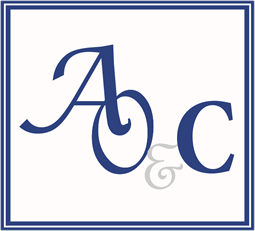INTRODUCTION
The Business Facilitation Act[2] (BFA) 2023 was signed into law by Former President, Muhammad Buhari in February 2023.The act was enacted by the Federal government majorly to further expand and enhance the ease of doing business in Nigeria in a bid to create a better business environment for both local and foreigners in the Nigerian economy. The act seeks out to amend, by adding, repealing and altering several provisions in 21 different business related Legislations which will be examined in this article.
The objectives of the act include but not limited to; promote ease of doing business for both local businesses and foreign participation in businesses in Nigeria and eliminate bottlenecks; facilitate the growth of businesses in Nigeria by reducing the time of application to Ministry Departments and Agencies (MDAs) of the Federal Government, amended relevant legislation to promote the ease of doing business in Nigeria and it also seeks to institutionalise all the reforms to ease implementation.
This article aims to highlight key innovations, amendments and reforms the Business Facilitation Act seeks to achieve. This would now be addressed below.
HIGHLIGHTS OF THE BUSINESS FACILITATION ACT
It is important to note that the act applies throughout the Federal Republic of Nigeria as it is an act of the legislature at the federal level.
ACCOUNTABILITY AND TRANSPARENCY BY THE MINISTRIES, DEPARTMENTS AND AGENCIES
- BFA provides that Ministries, Departments and Agencies (MDAs) of the Federal Government should provide a list of requirements needed to obtain its products and services.[3] This introduces the element of transparency in the activities of the Ministry Departments and Agencies (MDAs) of the Federal Government.
- The act also makes provision for cases where the Ministry Departments and Agencies (MDAs) of the Federal Government fail to conclude the application of an applicant (by accepting or rejecting such applications). The act provides that such applications not concluded within the law stipulated time be deemed approved[4]. This is a great innovation as it puts the MDAs on it toes to ensure speedy and efficient discharge of it duties to applicants.
COMPANIES AND ALLIED MATTERS ACT
- The act directs that all activities conducted by the Corporate Affairs Commission be automated. This is a wonderful innovation bearing in mind the technological advancement of the world and it enhances a faster engagement with the commission.
- A company having a share capital can now increase it issued share capital by the allotment of new shares of such amount in the company’s general meeting or via a resolution of the board of Directors subject to the condition or direction that may be imposed in the Articles or by the company in general meeting[5].
- The Act reduced the period to file returns on allotment from one month to 15 days. This will ensure a speedy and prompt inclusion of the name of a new shareholder in the company’s records with the corporate affairs commission.
- The act introduces an option of issuing electronic share certificate to shareholders[6].This innovation reduces the inconveniences and costs that accompany the issuance of a physical copy of a share certificate. It also enhances ease of receiving the share certificate where the shareholder is not domiciled in the Company’s jurisdiction.
- The act extends the electronic meeting option to Public companies by deleting the word ‘private’ from section 240(2) of the Companies and Allied Matters Act, 2023[7].
- BFA introduced electronic means of serving notices to section 244(1) of CAMA 2020[8].
- The act amended the number of independent directors a public company should have from to at least one-third of the board of directors[9].
- The act also provides that a person can only be a director in 5 public companies[10], where a person is a director in more than 5 companies before the commencement of this act, such a person shall resign as a director of all but five of the companies not later than the next annual general meeting of the companies after the expiration of two years from the commencement of this act.
- It clarifies that the financial statement of a company is to be prepared in accordance with the accounting standards prescribed in the statements of accounting standards issued by the Financial Reporting Council of Nigeria[11].
- It further clarifies the issue of which company is to be regarded as a small company[12]. A company would qualify as a small company in relation to a subsequent financial year if the conditions qualifying it as a small company are met in that year and the preceding financial year.
- The Act altered the two hundred thousand naira threshold requirement in section 572 of CAMA for insolvency. The act does not provide for a new sum but rather it empowers the corporate affairs commission to determine the sum for insolvency as it deems fit[13]. This allows CAC set threshold based on commercial realities and expediency but creates uncertainties in the sum to be used as a threshold for companies. It would be better for the commission to release a guideline on the issue of the threshold for insolvency.
- The Act has also repealed the definition of an insolvency practitioner provided in CAMA 2020. The Corporate Affairs Commission is expected to fill this gap by issuing or a regulation on who is to be classified as an insolvency practitioner.
NIGERIAN EXPORT PROMOTION COUNCIL ACT
- The Business Facilitation Act gave a new direction on how the governing board of the council should be constituted[14].
- It clarifies the qualification of a person to be appointed as the chair of the council. The act provides that the chair shall be a person with cognate experience in industry, commerce, finance, international trade, or export promotion[15].
CUSTOMS AND EXCISE MANAGEMENT ACT
The act makes provision for a ‘single window’ which allows parties involved in trade and transport to lodge trade-import, export or transit-data required by government departments, authorities or agencies through a single-entry point interface to fulfill all import, export, transit related and other regulatory requirements[16].
FOREIGN EXCHANGE (MONITORING AND MISCELLANEOUS PROVISIONS) ACT (FOREX ACT) 2004
BFA amends Section 6 of the FOREX Act by substituting for subsection (1), a new subsection “(1)” –(1) The Central Bank may revoke the appointment of an Authorised Dealer or Authorised Buyer, where the authorised dealer or authorised buyer –
- fails to utilize the licence within 30 days;
- fails to commence its exchange business within six months from the date of the license;
- fails to disclose in their application, any material information known to the licensee or reasonably expected to have been known by the licensee;
- provides material information, which is false;
- has not complied with a directive under the Act;
- following the issue of the license ceased to qualify for the license;
- is found to be in malpractice or irregularity in the management of the business of dealing in foreign exchange;
- is placed under liquidation, receivership or is adjudged bankrupt;
- conducts or intends to administer its business in a manner that threatens the interest of customers or potential customers;
- or any of its shareholders apply for the liquidation of the company;
- has a judicial receiver or manager or any similar officer appointed to manage or take over his undertaking; or
- has a bankruptcy order or judgment against him[17].
IMMIGRATION ACT
- BFA amended section 20 of the Immigration act by providing that entry visas to Nigeria be issued or rejected with reason within 48 hours of receipt of valid application[18].
- It also provides that a comprehensive list of all the requirements needed to obtain visa on arrival in Nigeria be updated on all Immigration-related websites, embassies, and high commissions and all Nigerian port entries.[19]. This provision creates well-structured and automated system that enables foreigners coming into Nigeria obtain visas with ease which in turn allows them have seamless business transactions in Nigeria especially in cases of emergency or urgency.
INVESTMENT SECURITY ACT
The BFA act amended section 67 (1) of ISA by empowering a private company the capacity to allot it shares through lawful means in line with the regulation of the Securities and Exchange Commission[20]. This is a good amendment for private companies as it allows them raise funds from the public and enhances their ability to reach larger prospective shareholders which in turn reduces the rate of companies going insolvent.
NATIONAL HOUSING FUND ACT 1992
- BFA amended section 4 of the National Housing Fund Act. The section now provides that an employee earning the national minimum wage and above in the public sector in Nigeria shall contribute 2.5% of his monthly income to the fund while an employee in the private sector earing the in the same range may contribute 2.5% of his monthly income to the fund[21]. The implication of this is that only employees who earn the national minimum wage and above in the public sectors are mandated to pay the 2.5% to the national housing fund as employees from private sectors are now exclude from the mandatory compliance with this obligation.
- A self-employed person earning equivalent of the national minimum wage and above shall contribute 2.5% of his monthly income to the fund.[22]
NATIONAL OFFICE FOR TECHNOLOGY ACQUISITION PROMOTION ACT
BFA amends Section 5(2) of the NOTAP act by inserting the words ‘provided that companies in their first two years of business operations shall not be liable to late registration penalties where such contracts are registered before the end of the second year of their business operation.’[23]
PENSION REFORMS ACT
The BFA amended section 89 of the Pension Reforms Act by providing that pension assets are eligible for securities lending as the pension commission may approve[24].
NIGERIAN OIL AND GAS INDUSTRY CONTENT DVELOPMENT ACT
BFA has inserted the meaning of the term ‘Nigerian Independent Operators’ in the act to mean “a Nigerian company’ in section 106[25]. This further reinforces the aim of the National Oil and gas Industry Content Development Act which is to the effect that first consideration be given to Nigerian companies in the award of oil licenses, projects, blocks etc.
INDUSTRIAL TRAINING FUND ACT
The BFA increased the 5 employees’ requirement for a company to contribute to ITF to 25 employees’ requirement[26]. Thus a company with 25 or more employees in it establishment and not within a free trade zone must contribute one percent (1%) of its annual payroll to the industrial training fund.
TRADEMARK ACT
BFA amended the definition of goods in the trademark act to include services[27]. The BFA act also extended trademark to include the shape of goods, the packaging and the combination of colors.
NIGERIAN INVESTMENT PROMOTION ACT (NIPC Act)
BFA modifies the NIPC act to permit any Nigerian registered company which after incorporation and commencement of business acquires foreign participation to register with the company within three months of such acquisition.[28]
NIGERIAN PORTS AUTHGORITY ACT
BFA directs the authority of the Nigerian port authority to embrace an automated system and provide facilities for information communication technology within the port.[29]
THE PATENT AND DESIGNS ACT
BFA empowers the minister to make regulation to prescribe the procedure for the application, grant, use and withdrawal of compulsory licences.
STANDARD ORGANISATION OF NIGERIA ACT
BFA extended the duties of the organization to include ensuring that it investigate the quality of products imported into Nigeria as opposed to the earlier case where it focused only on products mainly made in Nigeria[30]. This allows the organization be able to ensure that only standard products are imported into Nigeria for consumption and use.
THE NATIONAL PLANNING COMMISION ACT
BFA introduced the Director-General of the infrastructural concession Regulatory commission.[31]
EXPORT (PROHIBITION) ACT
BFA empowers the minister of finance to determine goods that are prohibited from being exported outside Nigeria as opposed to the previous position which prevented exportation of the goods outlined in the schedule of the act.[32]
THE FINANCIAL REPORTING COUNCIL ACT
BFA amended the financial reporting council act to provide that general purpose financial statement prepared by companies and government organisations be prepared in accordance with the standards and regulations adopted by the financial reporting council of Nigeria.[33]
THE INDUSTRIAL INSPECTORATE ACT
BFA increased the threshold for capital expenditure for new and existing organisations from twenty thousand naira to five million naira.[34]
[1]An Appraisal ofThe Business Facilitation Act, 2023 by Faidat Balogun.
[2] The Business Facilitation (Miscellaneous provision) Act 2023
[3] Section 3(1) The Business Facilitation (Miscellaneous provision) Act 2023
[4] Section 4 The Business Facilitation (Miscellaneous provision) Act 2023
[5] Section 3, Part I of the schedule
[6] Section 7,Part I of the schedule
[7] Section 11,Part I of the schedule
[8] Section 12(a) Part I of the schedule
[9] Section 14Part I of the schedule
[10] Section 16Part I of the schedule
[11] Section 17 Part I of the schedule
[12] Section 18 Part I of the schedule
[13] Section 19 Part I of the schedule
[14] Section 23 part II of the schedule
[15] Section 23(3) Part II of the schedule
[16] Part III of the schedule
[17] Section 34 Part of the Schedule
[18] Section 36 Part VII of the schedule
[19]ibid
[20] Section 42 part X of the schedule
[21] Section 45 part XI of the Schedule
[22] Section 45 part XI of the schedule
[23] Section 48 part XII of the schedule
[24] Section 63 part XIX of the schedule
[25] Section 57 part XVI of the schedule
[26] Section 41 part IX of the schedule
[27] Section 69 part XXI of the schedule
[28] Section 54 part XV of the schedule
[29]Section 58 part XVII of the schedule
[30] Section 66 part XX of the schedule
[31] Section 50 part XIII of the schedule
[32] Section 30 part IV of the schedule
[33] Section 32 part V of the schedule
[34] Section 39 part VIII of the schedule
By: Faidat Balogun
Faidat is an Associate at Adedunmade Oinbokun & Co.


